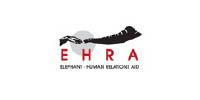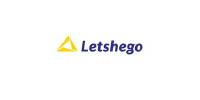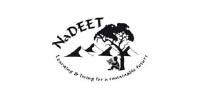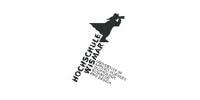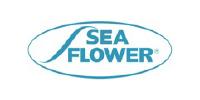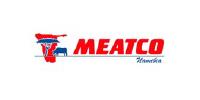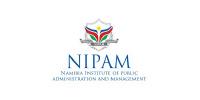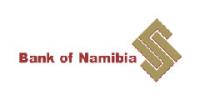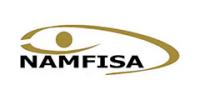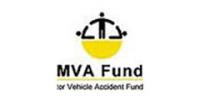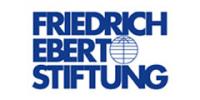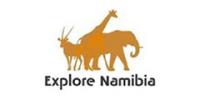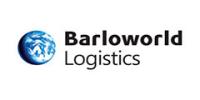Introduction
The Cooperative Education (CE) at the Namibia University of Science and Technology serves to connect industry with academia. It coordinates Work Integrated Learning/Internship placement for students to apply theory in the practical world of work.
 Cooperative Education is a discipline on its own with research and educational pedagogies. CE is the custodian of the Work Integrated Learning (WIL) course, driving the vision of cooperative education at NUST. The Unit engages both private- and public sector institutions to provide input in the development of programmes, thereby ensuring the relevance of the curriculum content and context for the Namibian economy. The Unit also facilitates the placement of students in industry to undertake Work integrated Learning (WIL). WIL allows students an opportunity to apply in practice what they have learnt in theory and is enabled through a practice of mentoring and coaching by an industry mentor during an internship.
Cooperative Education is a discipline on its own with research and educational pedagogies. CE is the custodian of the Work Integrated Learning (WIL) course, driving the vision of cooperative education at NUST. The Unit engages both private- and public sector institutions to provide input in the development of programmes, thereby ensuring the relevance of the curriculum content and context for the Namibian economy. The Unit also facilitates the placement of students in industry to undertake Work integrated Learning (WIL). WIL allows students an opportunity to apply in practice what they have learnt in theory and is enabled through a practice of mentoring and coaching by an industry mentor during an internship.
VISION
“To contribute to the graduate employability improvement in Namibia through integrating theory and practice” Consistent with the Namibia University of Science and Technology (NUST)’s vision to “A premier technology university for known for knowledge creation, innovation and entrepreneurship”.
Given the profile and mandate for career-oriented education at NUST, focusing on producing graduates with the following attributes; Deep Knowledge, Problem solving, Teamwork and Communication, Technology, Entrepreneurship and Innovation, Emotional intelligence and Self-Awareness, Ethical Global Citizenship and Leadership outcomes and the reputation for quality. CE being the custodian of WIL complements the institutional vision and specifically the implementation of the Curriculum Framework through the application of an integrated approach to teaching and learning for the attainment of qualifications. It specifically encourages and enhances learning partnerships/relationships and collaboration between NUST, industry and the students, nationally and internationally.
This integrated approach to teaching and learning positions the Namibia University of Science and Technology favorably to address the challenges contained in the changing Higher Education landscape, the current dynamic socio-economic and technological advancements, and the concomitant requirements thereof. In particular, the changing profiles and demographics of students and workers, resulting in new demands, require a responsive university.
Cooperative Education at the Namibia University of Science and Technology will serve as a leading model of relevant, high quality higher education through collaboration with stakeholders to actively contribute towards a skilled workforce in a future-oriented Namibia. Thus, the Namibia University of Science and Technology will educate leaders to realize Vision 2030, and lead the skills transformation for the Namibian economy.
MISSION
“To facilitate access to WIL opportunities through stakeholder engagement, collaborating and practicing innovative Cooperative Education approaches”
Through its innovative approach to education, NUST regards itself as a partner of industry (public- and private sectors) in the development and delivery of high-level Human Resources which will contribute to the Namibian economy driven by its vision “An engaged and responsive university, meeting the needs of stakeholders through excellent education, applied research, innovation and service”
Following international trends, CE contributes to the institutional mission through its philosophy of cooperative education.
Cooperative Education Advantage:
Stakeholder Engagement
- Recognition of stakeholders support
- Stakeholder partnership profile
- Capacitate stakeholders with mentorship skills
- Students exposed to the world of work
- Coordinate and facilitate the relationship between industry, community, students and the university
- Grow and maintain the university stakeholder's partnership profile
- Conduit to expose Students to the world of work
Cooperative Education Specialization
- WIL course distinctive factor for the university
- Staff experience and unit memory preserved
- Well-structured Cooperative Education framework in the institution
- WIL course embedded in the undergraduate’s programme curriculum
- CE input into the WIL curriculum
- CE provide advice and guidance in the area of Co-op, WIL and Employability
- Facilitate placement for students
- Liaise with Industry, government and community
Quality Pre-WIL Programme
- Employability skills enhancement through EIP training
- Career Starter workshops in collaboration with B360
- Employability Improvement Programme
- Pre-WIL Work readiness workshops
- Career starter workshop for WIL eligible students and Alumni
Graduate Outcomes
- Technical and/or professional and/or subject knowledge and the application thereof for the purpose of furthering a career or engaging in economic activity in a particular field of expertise.
- Critical thinking.
- Problem solving.
- Good Communication Skills in English and another language if required.
- Culturally sensitive global and responsible citizenship.
- Engaged community membership.
CE Team

Khumalo Kapelwa
WIL Industry Liaison Coordinator
T: +264 61 207 2652
E: kkapelwa@nust.na

Michael Kisting
Career Guidance Practitioner
T: +264 61 207 2271
E: mkisting@nust.na

Mwetuvaya Nghiiki
WIL Industry Liaison Coordinator
T: +264 61 207 2866
E: mnghiiki@nust.na

Ndapewa Nangombe
WIL Industry Liaison Coordinator
T: +264 61 207 2758
E: nnangombe@nust.na

Petrina Batholmeus
WIL Industry Liaison Coordinator
T: +264 61 207 2515
E: pbatholmeus@nust.na





